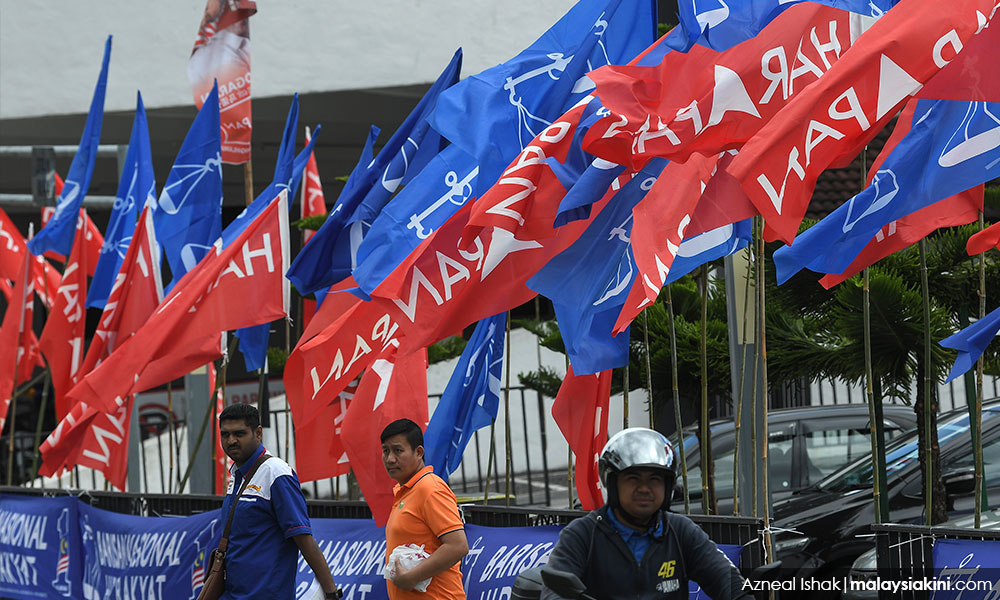
CAMERON POLLS | ANALYSIS | In the 14th general election, DAP came out at the best-performing party and scored the highest win rate after spending decades as the underdogs.
Though DAP is finally part of the federal government, they are still underdogs going into the Cameron Highlands by-election tomorrow having secured only 38 percent of the vote there during GE14.
As the campaign comes to a close at midnight today, the party's deficiencies are also becoming apparent.
For one, the urban-centric party was confronted with an unfamiliar voter demographic - farmers, Felda settlers, religious conservatives and Orang Asli.
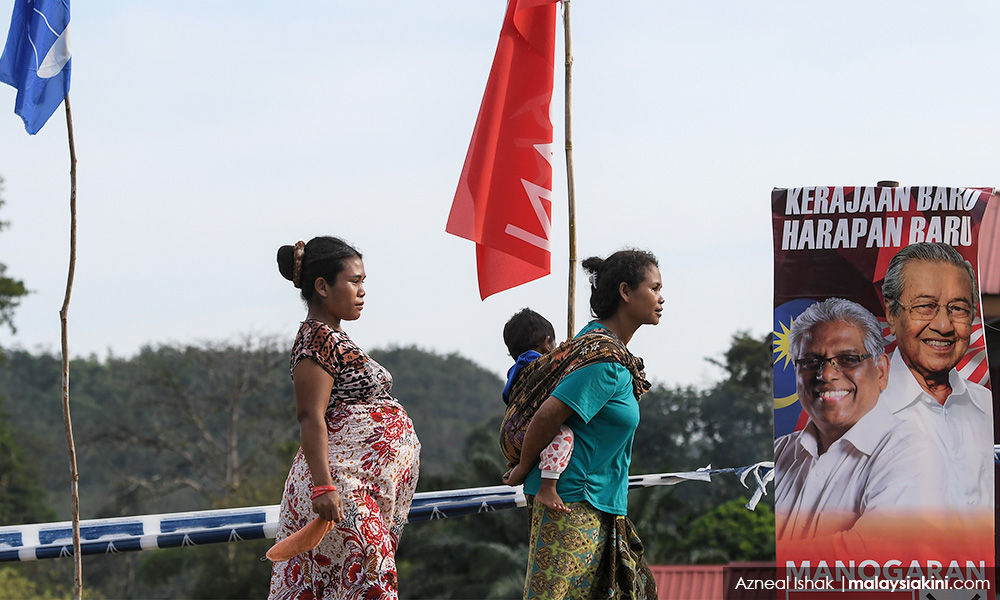
Malaysiakini observed that DAP vote-canvassers, mostly from urban areas in neighbouring states, found it difficult to get through to the rural electorate, often relying on their Pakatan Harapan allies to speak for them.
Unlike previous campaigns which focused on governance and combating corruption, DAP's campaign message was an eclectic mix ranging from parking issues, land matters, vague promises about "development" and the party's pet topic, 1MDB and Najib Abdul Razak.
In contrast, BN's strategy was focused, limiting their campaign message to Harapan's inability to keep its election promises and DAP's alleged "anti-Islam" leaning.
Harapan on the defensive
Taking a page out of DAP's book, BN leaders capitalised on every faux pas by Harapan leaders turning them into campaign fodder.
On nomination day, Harapan candidate M Manogaran was already on the back foot, due to Senator Bob Manolan Mohd's perceived threat against Orang Asli village chiefs who do not support the Harapan federal government.
BN also latched on to video clips which allegedly showed a Harapan leader abusing government assets by using a Forestry Department vehicle for campaigning purposes.
PAS, which allied itself with BN for this by-election, chipped in by holding a considerable number of small ceramah to paint DAP as purported enemies of Islam.
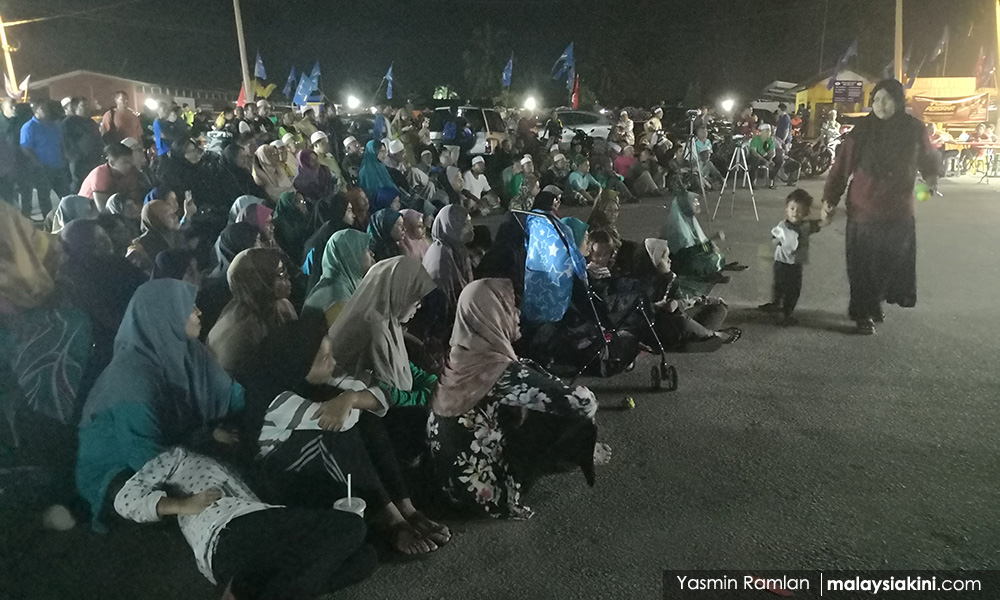
Unlike previous by-elections over the past year, a large number of ministers and their deputies joined in this campaign with many attempting to fend off BN's and PAS' religiously-charged allegations against DAP.
Even DAP veterans Lim Kit Siang and Lim Guan Eng, who are masters of aggressive rhetoric, found themselves on the defensive after making statements which BN had portrayed as conditional offers to voters.
Kit Siang, for instance, promised to help draft a blueprint to improve conditions for the Orang Asli but apparently only if Harapan won.
Birth of 'Bossku'
The latter half of the campaign strangely saw a series of back-and-forth exchanges between Kit Siang and Najib who used the media spotlight on the campaign to launch his new "Bossku" persona.
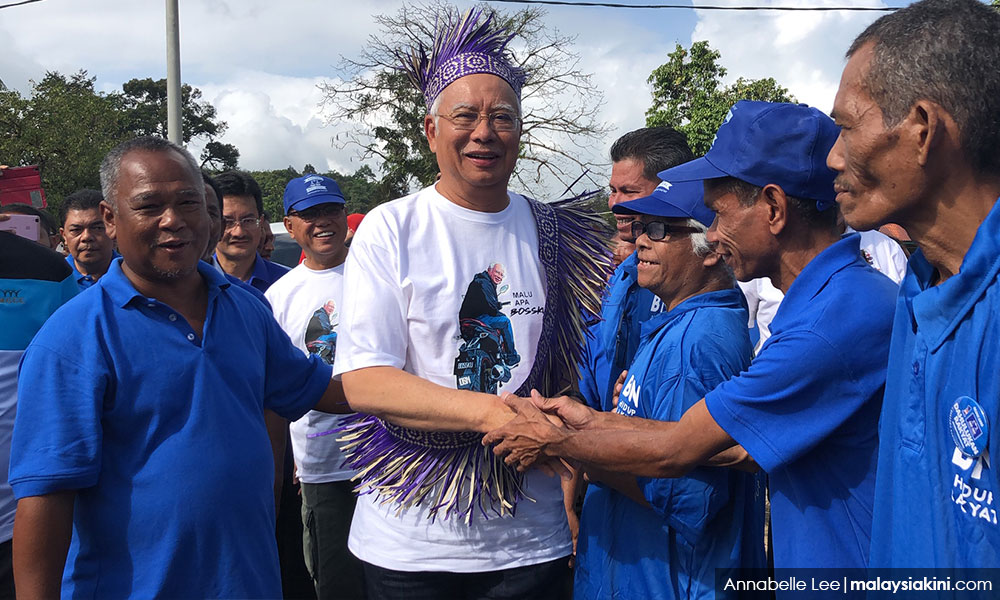
Despite facing a long list of corruption charges, Najib is still one of Pahang's most famous sons and proved that he was still a draw with the rural electorate.
Najib effectively became the face of the BN campaign, prompting Kit Siang to sound warnings that BN's victory in Cameron Highlands would herald the disgraced former premier's return to power in the run-up to the next general election.
But away from the media glare and ceramah stages, the main battleground between Harapan and BN may very well be the hundreds of Orang Asli villages scattered throughout the constituency.
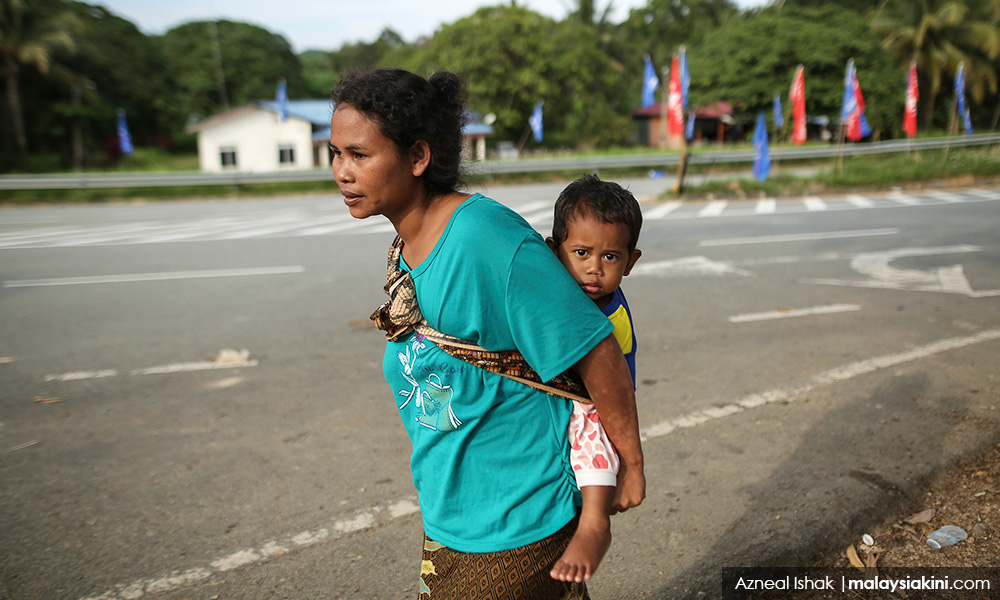
With scarcely any fence-sitters among the Malay, Chinese and Indian constituents, both coalitions are believed to have committed considerable resources to reach Orang Asli villages often located along treacherous terrain.
So far, BN's campaign message is centred on its past deeds for the Orang Asli while Harapan is portraying itself as the community's new benefactor.
In an election that is expected to go down to the wire, the winner will likely be the party which presents the most enticing offer to the Orang Asli community. - Mkini



No comments:
Post a Comment
Note: Only a member of this blog may post a comment.